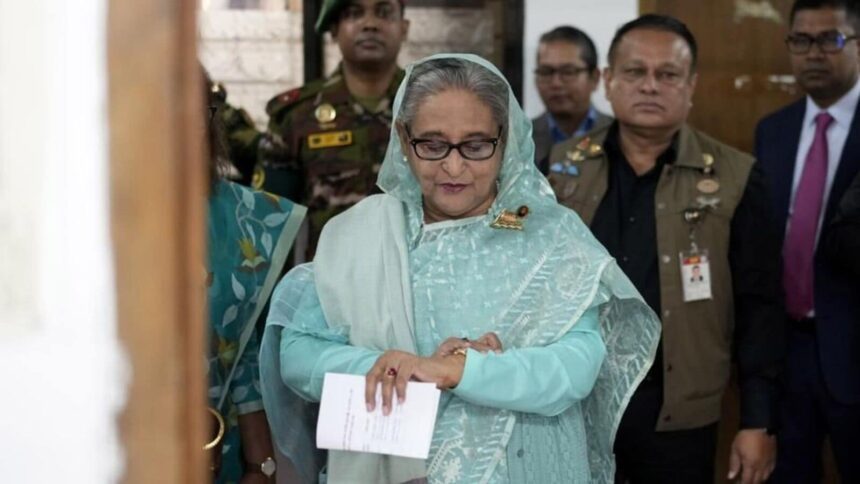Sheikh Hasina’s Legal Predicament: Unfolding Events in Bangladesh
The political landscape of Bangladesh has witnessed a seismic shift following the ousting of former Prime Minister Sheikh Hasina in August 2024. As the first anniversary of her exit approaches, the legal battles surrounding her continue to dominate headlines. Recently, a Bangladeshi court issued a second arrest warrant for Hasina, now in exile in India. This situation raises critical questions about international law, extradition, and the responsibilities nations hold in cases of alleged human rights violations.
Background: The Rise and Fall of Sheikh Hasina
Sheikh Hasina, who served as Prime Minister for 15 years, has been a towering figure in Bangladeshi politics. Her tenure, however, has been overshadowed by allegations of serious human rights abuses, including enforced disappearances, extrajudicial killings, and violent crackdowns on dissent. Reports suggest that over 500 individuals were reportedly abducted by her government’s security forces, raising alarm among human rights organizations globally.
In August 2024, widespread demonstrations ignited a student-led revolution, ultimately leading to Hasina’s ousting and her flight from Dhaka to India. Since leaving power, many of her allies have faced arrests related to the violent suppression of protests that resulted in over 700 deaths.
New Legal Developments: The Second Arrest Warrant
On January 6, 2025, the Dhaka court issued a second arrest warrant against Hasina, declaring her an absconder for failing to surrender upon leaving the country. This warrant is part of a series of ongoing legal actions against her, aimed at holding her accountable for alleged enforced disappearances during her administration. Alongside Hasina, charges have been levied against 11 others, including military and law enforcement officials.
Chief Prosecutor Tajul Islam emphasized the urgency of the situation by stating, "We want to ensure the trial concludes as soon as possible," illustrating the government’s commitment to pursuing justice, while also ensuring that due legal processes are adhered to.
Extradition Requests and International Law Implications
The interim government, now led by Nobel Prize winner Muhammad Yunus, has formally requested Hasina’s extradition from India, reflecting a determined stance to hold her accountable. However, the Indian government has not yet responded to this request, raising questions about the future of the extradition process.
From a legal standpoint, India is under no obligation to extradite Hasina. While the aut dedere aut judicare principle under customary international law mandates that states either extradite or prosecute individuals accused of serious international crimes, India’s own legal framework and political considerations may influence its decision regarding Hasina’s extradition.
The Trial’s Challenges
For the trial against Sheikh Hasina to commence, she must be present—whether physically or virtually—in the courtroom. According to common law jurisdictions, trials cannot proceed in absentia. This presents a significant challenge for the Bangladeshi authorities, as any legal proceedings would require negotiation with India, which has its own legal and diplomatic considerations regarding the case.
Conclusion: Implications for Bangladesh and International Human Rights
The unfolding situation surrounding Sheikh Hasina is more than a story of political upheaval; it reflects broader themes of accountability, justice, and the international community’s role in addressing human rights abuses. As the interim government attempts to navigate the complexities of extradition and due process, the eyes of the world remain fixed on Bangladesh.
Shafiqul Alam, press secretary to the chief adviser, hinted at a growing pressure for Hasina’s extradition, stating, "pressure will build for her extradition." As the political scenario evolves, it will be essential for both the Bangladeshi government and the international community to uphold principles of justice while respecting diplomatic norms.
With global awareness surrounding human rights abuses at an all-time high, the developments in Sheikh Hasina’s case could set significant precedents for how countries handle past leaders accused of severe violations, impacting not only Bangladesh but the global landscape concerning government accountability and human rights protections.










